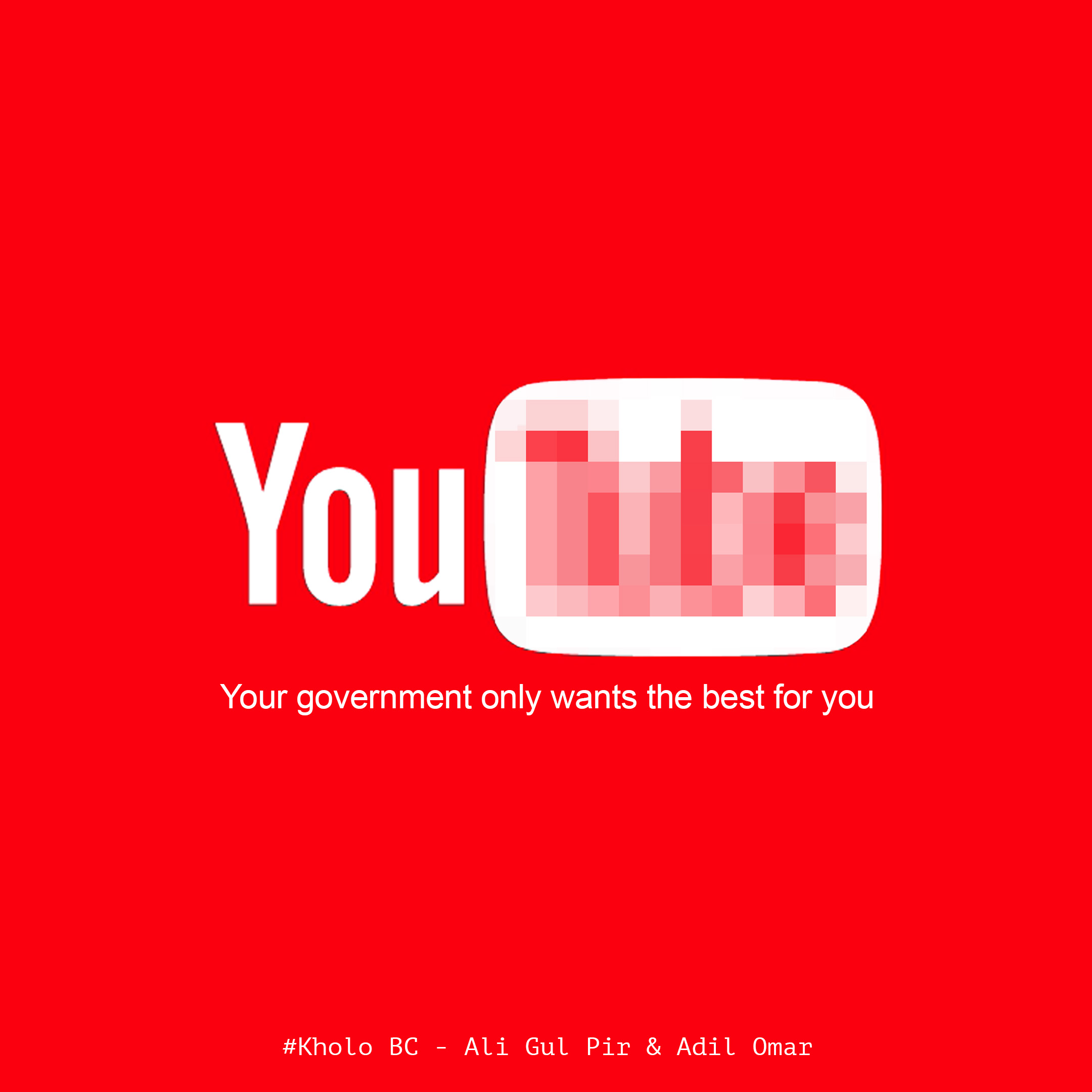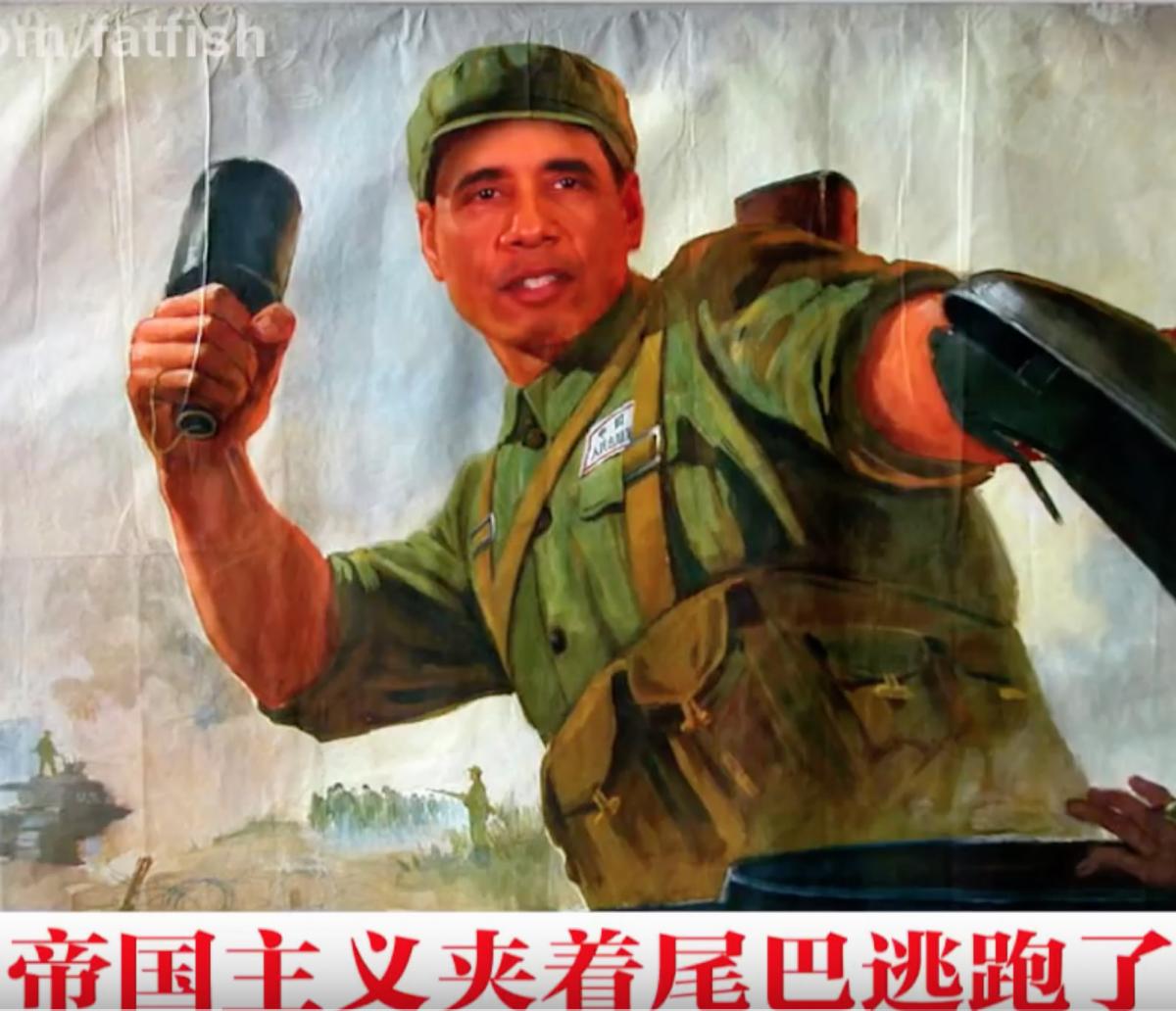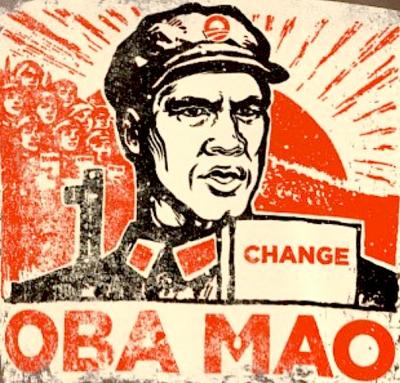
Pulling the Plug on Art
In their 2014 music video «#Kholo BC» Karachi-based rapper and comedian Ali Gul Pir and rapper and singer/songwriter Adil Omar criticize the Pakistani government for banning the video-sharing site YouTube. While Pir and Omar mince no words, our author Ali Haider Habib explains the impact of this censorship: «By depriving people of YouTube, the state is curtailing people’s right to express themselves and engage in active discourse», he writes. Read another commentary on the same video by Manal Faheem Khan here. From the Norient book Seismographic Sounds (see and order here).
Hundreds of thousands have found fame via YouTube. Obscure, struggling artists have been propelled to stardom, and many a musician has gone from playing in their bedroom to packed arenas around the globe. This is the power of social media, and few do it better than the most popular video-sharing site, YouTube. Ali Gul Pir was among millions of fresh graduates trying to find a way to make ends meet after being unceremoniously thrown into the «real world». In 2012, nearly two years since finishing his undergraduate degree, Pir was still struggling. His comedy troupe was performing the odd show in Karachi where he lives, but few other opportunities came by. That year, in the sweltering summer in a small rented apartment with no water, Pir decided to make a video for a satirical song he had penned on the feudal mentality in Pakistan. A camera was borrowed, help was sought from friends and fellow filmmakers, and the music video for «Waderai ka Beta» was born. Even if Pir expected a favorable response, he could not fathom how quickly he would become a household name. The video had a million hits in less than a month.
In September of the same year, Pakistan decided to ban YouTube after a trailer for a film called Innocence of Muslims, uploaded by a US resident, fueled violent rioting across the Muslim world. Perceiving the trailer as blasphemous and offensive to their beliefs, thousands of Muslims laid siege to US diplomatic missions in the Middle East. Protesters in Pakistan vandalized property too. In one of its moves to quell the dissent, the government banned YouTube. Though there were no violent riots to protest the ban, Pakistan’s artists lost a voice for which, three years on, they are still fighting.
Ali Gul Pir’s «#KholoBC» was released in February 2014. The song minces no words and the anger is apparent in the lyrics of both Pir and Adil Omar. In fact, the latter two words of the phrase «kholo ban chor» are homophones of South Asia’s most famous expletive: Bhen Chod (sister fucker), a jibe clearly directed at the government. By depriving people of YouTube, the state is curtailing people’s right to express themselves and engage in active discourse. Musicians, artists and all other performers and entertainers have been isolated as a result. Though there are other alternatives to YouTube, none are as popular or extensive. The chances of being «noticed» have gone down considerably. If it was harder before, now it is close to impossible.
This video is part of the Norient exhibition «Seismographic Sounds» and this commentary was published first in the correspondent Norient book.
The commentary is dedicated to the Pakistani peace activist Sabeen Mahmud, who was shot dead in Karachi in April 2015 after hosting a talk on human rights violations.
Biography
Shop

Published on February 09, 2016
Last updated on April 10, 2024
Topics
Why New Yorks’ underground doesn’t give a fuck about Trump or why satirical rap in Pakistan can be life threatening.
From political music in the GDR, the trouble of punk musicians in China and the dangerous life of kurdish folk singers in Turkey.
Loneliness can feel like isolation, but can also be a positive solitude by keeping distance from the worlds’ chaos.
From post-digital pop mocking the music history to Romanian folk music turning into a meme culture.
Special
Snap












